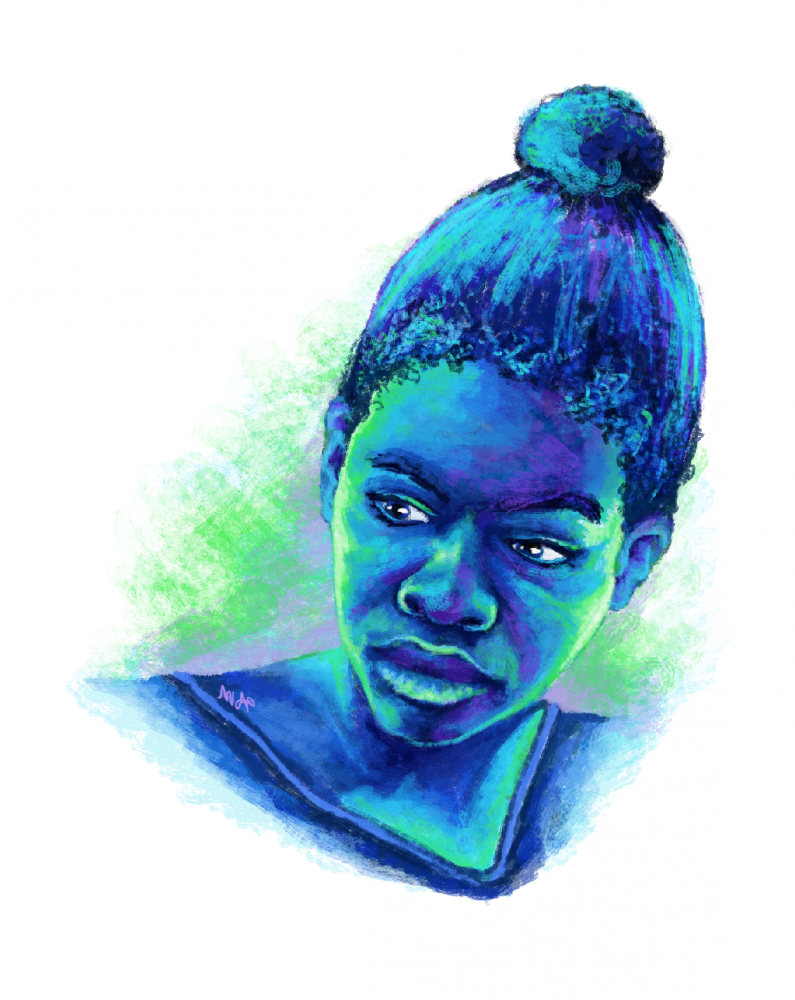#TeamUSA and the Star Spangled Scandals
by Rozie Yeghiazarian | published Oct. 7th, 2016
Being an athlete means being "dedicated to something you have passion and love towards," according to fourth year Industrial and Systems Engineering student Alexa Farner, a member of the RIT women's varsity softball team. "It teaches a lot of life lessons."
Members of the RIT athletic community discussed with Reporter how the media abused Gabby Douglas, the lessons we all hope 30-year-old Olympic swimmer Ryan Lochte learned from his trifling in the Rio de Janeiro Olympics and how media attention affects our athletes at RIT.
#CrabbyGabby
Douglas, a U.S. Olympic gymnast, brought home two gold medals in the 2012 London Olympics, one of them for the prestigious individual all-around event. Just 16 years old, her once modest life changed in an instant as sponsorships and fame painted a new face in the media — the face of "America's star gymnast," as an NPR reporter phrased it. She was further quoted saying, "If you push through the hard days, then you can get through anything." Douglas received rampant praise across various media outlets.
This greatly contrasts with the media coverage Douglas received during the 2016 Rio Olympics. The young gymnast went from being shown comforting her competitors in 2012 to being harassed by the media in 2016. Douglas was seen standing at attention when the U.S. national anthem played, but she did not have her hand on her heart like her fellow four U.S. gymnasts. She was also caught gazing at her competing teammates with a notably stale expression rather than actively cheering. Thus, the hashtag #CrabbyGabby was born as the social media attack swiftly made its way into the athlete's line of sight.
Fourth year Industrial and Systems Engineering student Jessica Dzailo, a member of the RIT women's cross-country team, heartily contested the reactions to Douglas' inactions by stressing that the gymnast's ability to come back to the Olympics a second time was a phenomenal feat by itself. "Think of all the work she had to put in to get to that point again," she said. Dzailo proceeded to point out how easily people felt they could "criticize" Douglas.
While competing in events at the 2012 Olympics, Douglas' coach "had forbid her from looking at the scoreboard throughout the competition, telling her to focus solely on him and the apparatus," a Washington Post article reported. Competing at that caliber takes intense focus, and even the smallest distraction can be detrimental to an athlete's performance ability. Added to that was an amassing social media presence looming over her, demanding an apology.
Douglas' mother Natalie Hawkins said that the respect shown towards your country is represented by "your actions towards your country, how well are you abiding by its laws."
"To me it looks like she's being bullied," Reuters quoted Douglas' mother Natalie Hawkins as having said. She further stressed that the respect shown toward your country is represented by "your actions towards your country, how well are you abiding by its laws." These are all qualities that Douglas has gone above and beyond to exhibit. The people antagonizing Douglas were the ones acting in an unpatriotic manner. Their words and actions were based in superficial and subjective discourse ranging from how she wears her hair to how she cheers for her teammates.
Third year Computer Engineering Technology student Kelsey Patten, a member of the RIT men's wrestling and men's track and field teams, described the drive in team sports when he said "I want to win for myself, I want to win for my teammates." This mentality, which is shared by Dzailo and Farner, was clear in Douglas' performances throughout her Olympic career. Even if the support she expressed for her teammates was not made clear to viewers, that does not mean it was nonexistent.
Unfortunately, Douglas's post-Olympic interviews were full of inquiries regarding the "latest wave of criticism," reported ESPN. Dzailo, who found this particularly upsetting, concluded that "it could have been covered way better by the media, in a much more sensitive way."
Then, something that Joe Venniro, executive sports information edditor for RIT had called a "non-story" turned into a scandal in a matter of hours as another Olympian found himself in the media's crosshairs.
#LochteGate
Ryan Lochte is a name we have all undoubtedly heard in conversations surrounding the Rio Olympics. His actions have woven a tale with more twists than any reality TV series. Lochte's original statement about having been mugged at gunpoint on the streets of Rio eventually devolved as its merits disappeared and the truth surfaced. The scandal, dubbed #LochteGate, took on a life of its own.
A Washington Post article wrote, "The three other U.S. swimmers were lying on the ground, following their assailant’s orders, when the gunman turned to Ryan Lochte, one of Team USA’s charming stars." Believing the coast was clear in their tweet-sealed blood pact, the swimmers crafted a lie and consciously fed off the public's sympathy, but the truth would soon disgrace them for their actions.
It was only a matter of time until the headlines began to read "Police discredit Ryan Lochte’s robbery story, say swimmers owe Rio an apology," and derivations thereof. That same article went on to detail the depth of the swimmers' indiscretions. The four "charming stars" had destroyed property, capturing the attention of a security guard who had demanded they pay for their vandalism. Their natural response to the night's proceedings had been to fabricate a riveting tale of assailants dressed as cops mugging their seemingly innocent selves.
"You're held to a standard when you put on that t-shirt," Farner said. "Sure, maybe he wasn't wearing a USA Swimming t-shirt but everyone knew who he was."
"What bothered me the most is the fact that he lied," Farner said. She found his behavior especially disappointing and stated, "He had millions and millions of people following him throughout the Olympics." Farner, like many RIT athletes, has been taught that "you're held to a standard when you put on that T-shirt." That is not to be taken as entitlement to enact such negligence in representing the U.S. She continued, "Sure, maybe he wasn't wearing a USA Swimming T-shirt, but everyone knew who he was." She proceeded to talk about the journey that shame takes through an athletic organization. When an athlete does something bad, it embarrasses the team, adjacent sports teams and ultimately the school as a whole.
#RITSports
"It's unfortunate that that's overshadowed … the fact that you had so many stars in the Games between Bolt, Phelps, Ledecky and Biles," said Venniro. "The bigger the stage, the bigger the coverage."
The student athletes and Venniro agree that the media is a commerce-driven entity. News outlets are looking for what might rile their audience and, according to Venniro, "Sometimes the truth gets skewed. Places will go with what sells the most."
"It's unfortunate that that's overshadowed … the fact that you had so many stars in the Games between Bolt, Phelps, Ledecky and Biles," Venniro said. "The bigger the stage, the bigger the coverage."
Venniro is responsible for handling the media and social media surrounding the RIT athletic community. "We have a brand to uphold here," he said while explaining how he and his team work to portray the school in a positive light. They take the time to weave individual athletes' stories into the overall RIT athletic narrative. Venniro summed it up as, "We like to focus on our athletes." As Patten phrased it, "I'm here to represent RIT, myself, my family and my hometown." 




